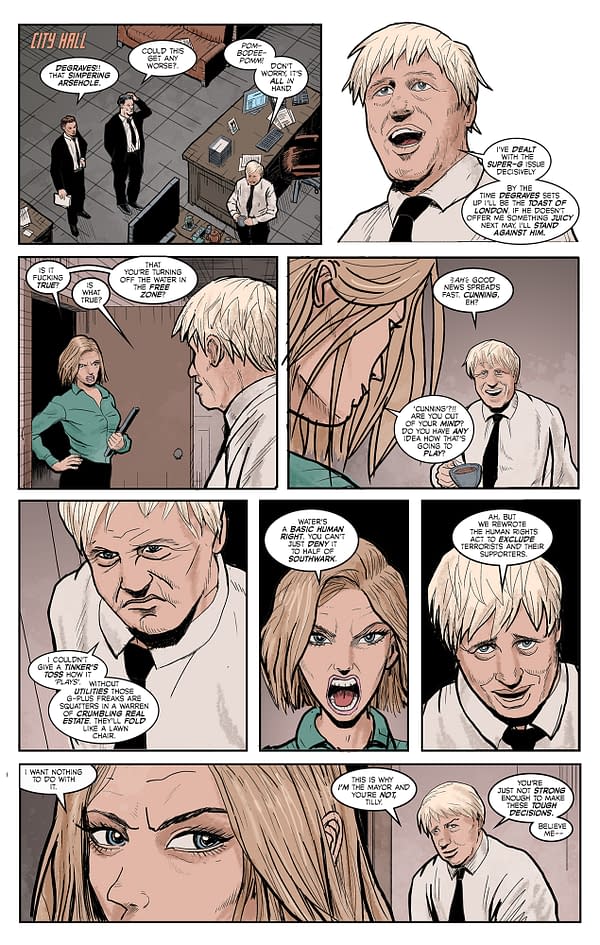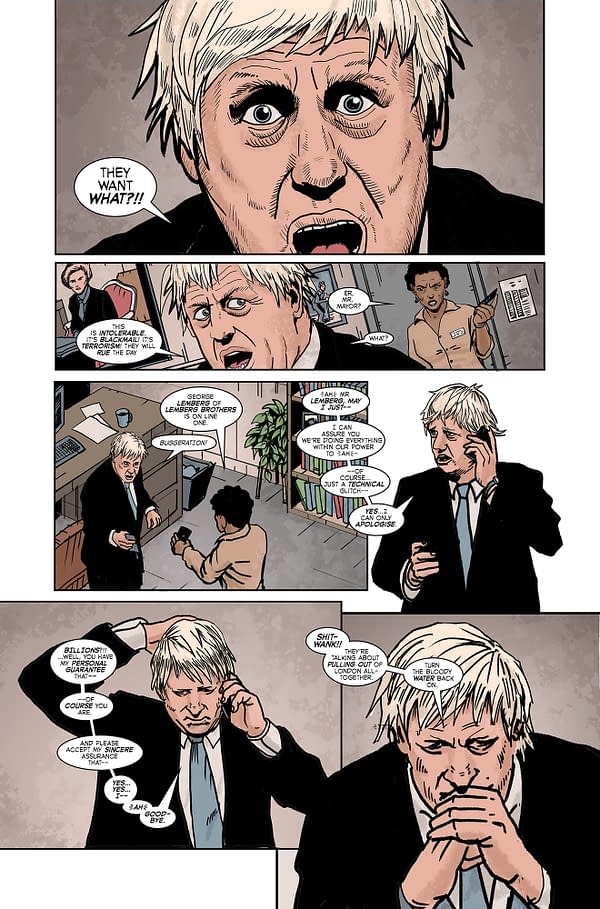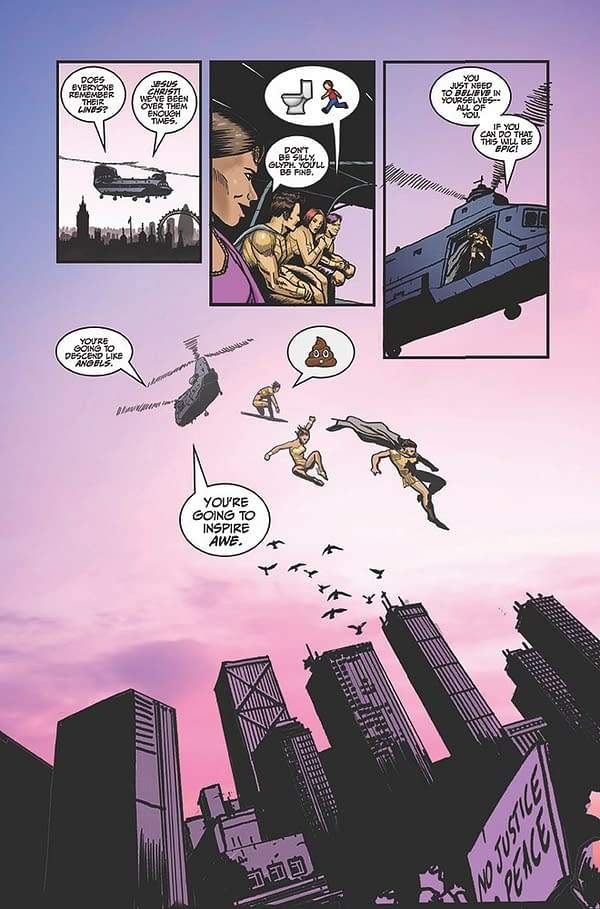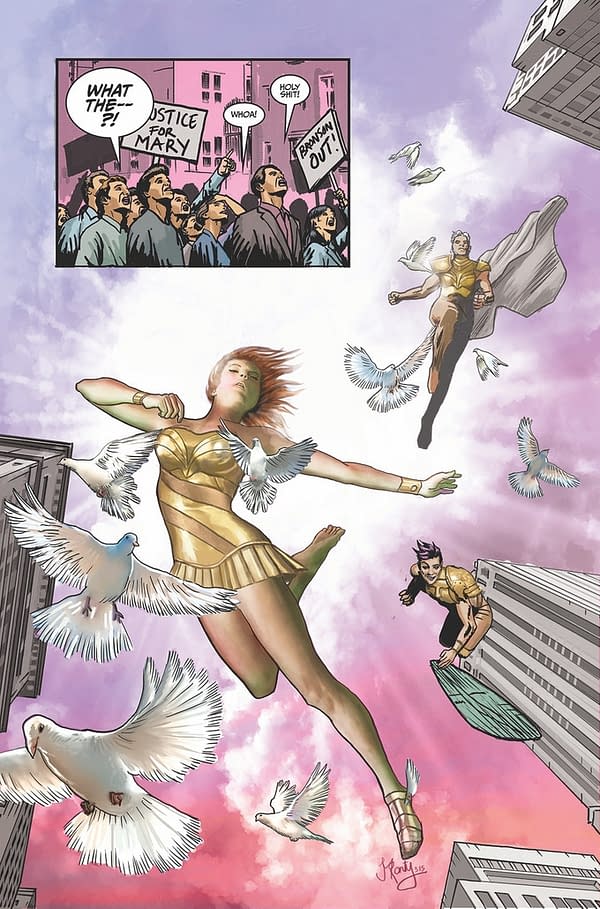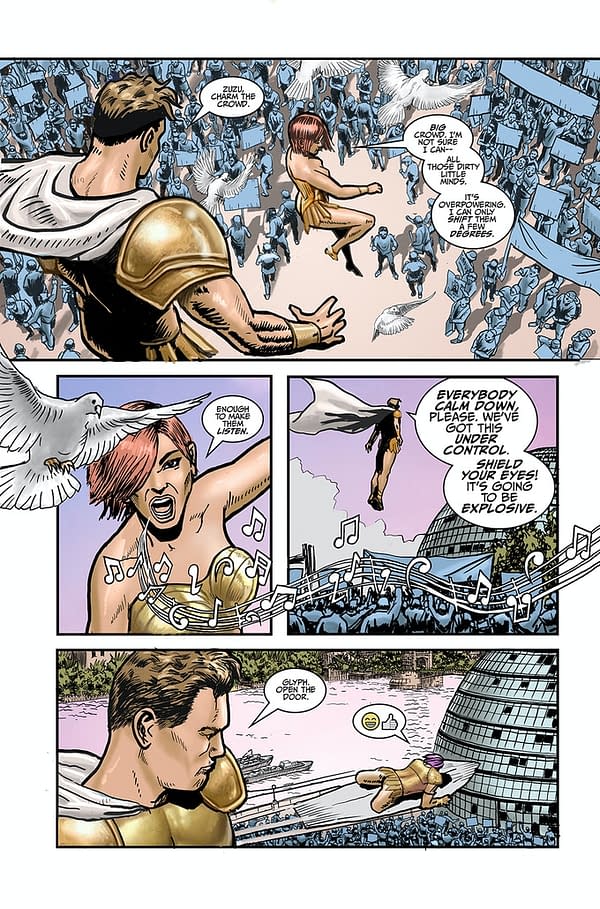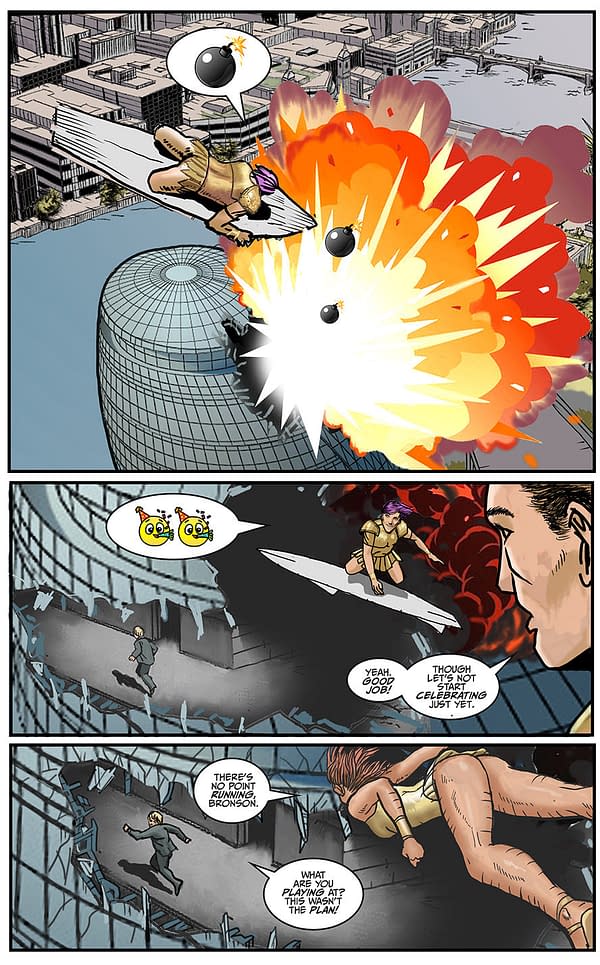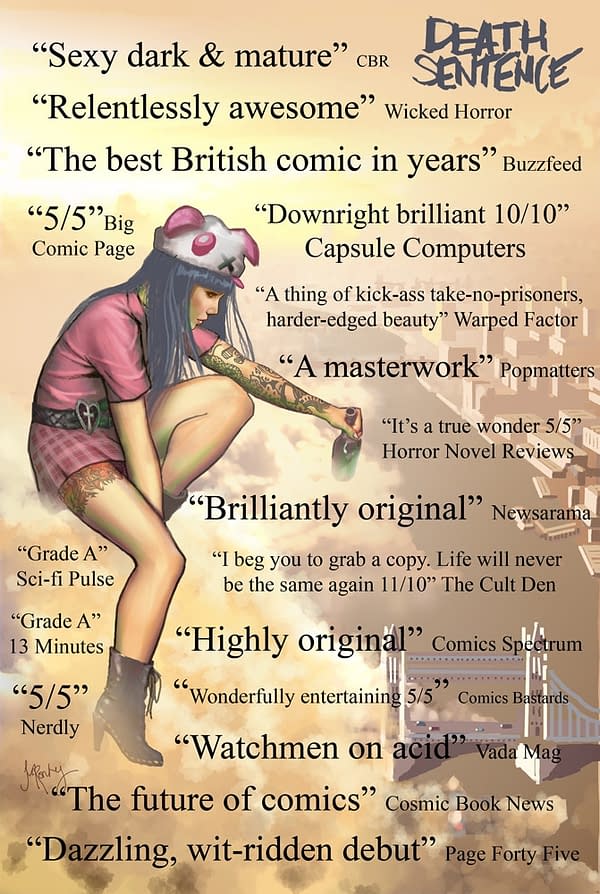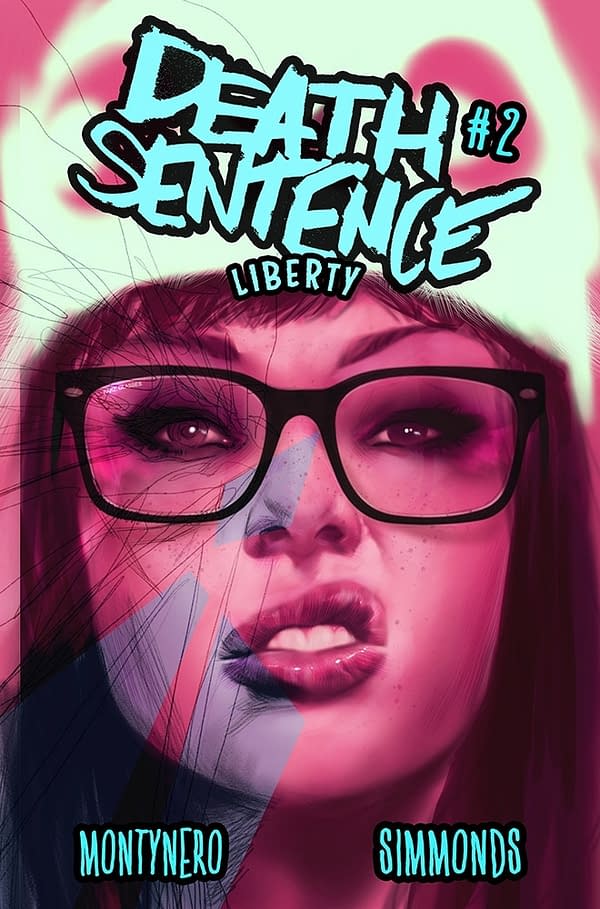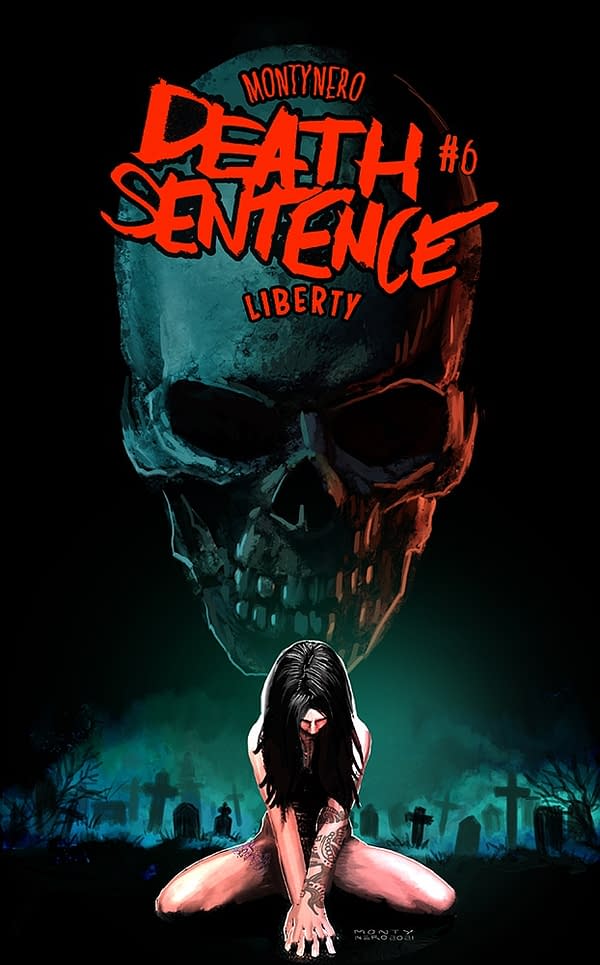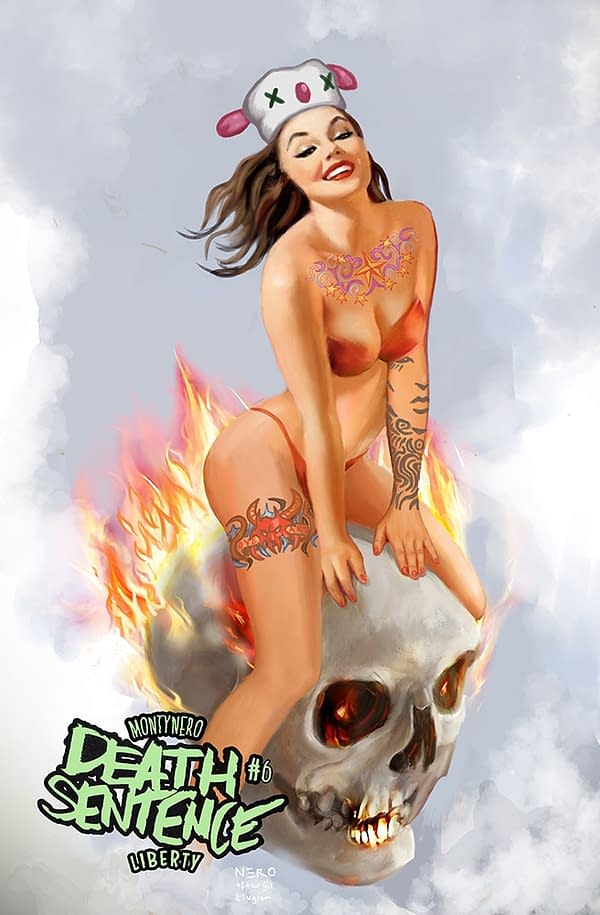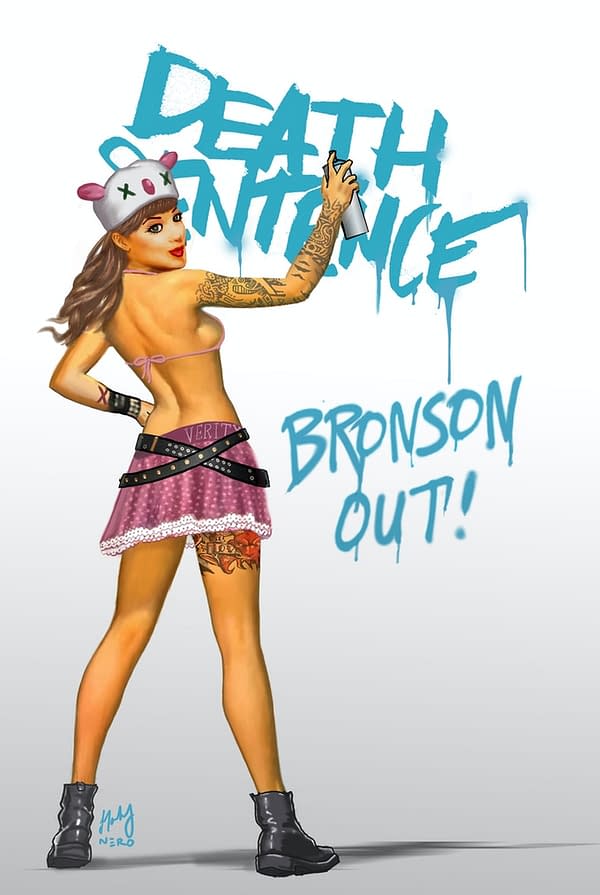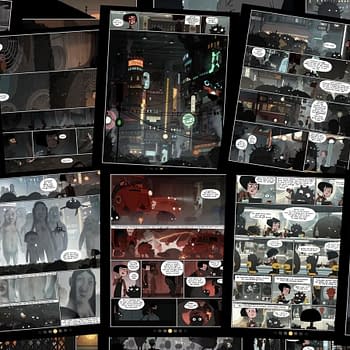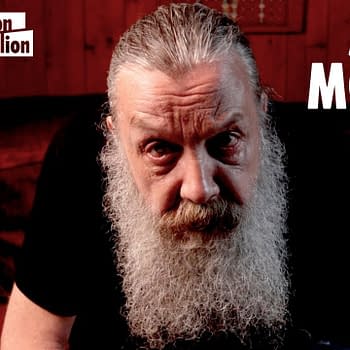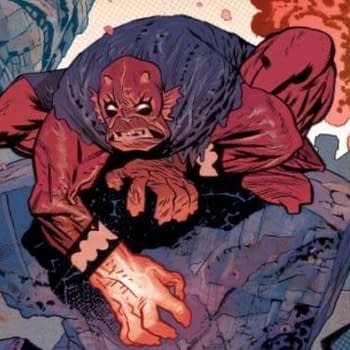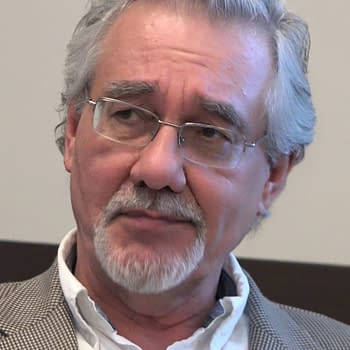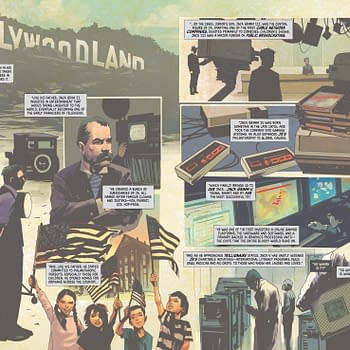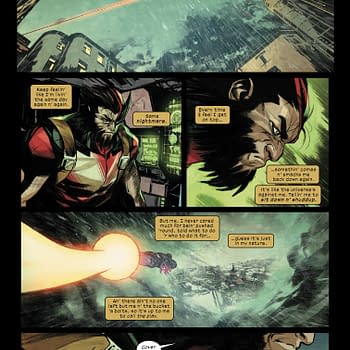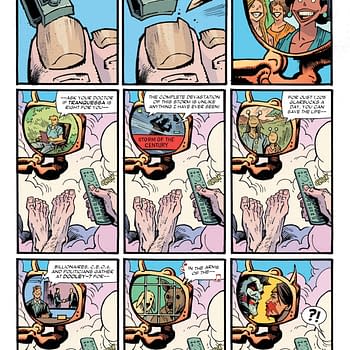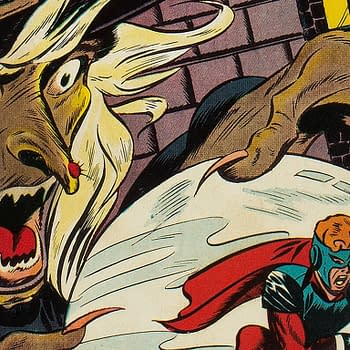Posted in: Comics, Titan | Tagged: boris johnson, death sentence, kickstarter, monty nero
Did Death Sentence Predict Boris Johnson's Future In 2015?
Monty Nero and Mike Dowling created the Death Sentence comic book series in 2013 about a sexually transmitted virus which infects people with super powers and kills them in six months, initially self-published, it was then picked up by Titan Comics after being supported by Mark Millar and in CLiNT Magazine. The second series, Death Sentence London was drawn by Martin Simmonds, now better known for Department Of Truth. and was published back by Titan in 2015, and continued in the new Death Sentence Liberty, drawn by Martin Simmonds and Monty Nero, coming to its conclusion on Kickstarter. The second and third series tell the story of a world beset by a deadly virus, where the British public are forced into an oppressive lockdown which is then ignored by their own Prime Minister Tony Bronson drawn to resemble Boris Johnson, a man with a bumbling persona and a reputation for partying, promiscuity, and messy hair. Boris Johnson was only elected Prime Minister in 2019 and 2015 was also long before Covid-19 happened.
Monty Nero told Bleeding Cool "When I write, I'm trying to satirise the world around me in a kick-ass action story. Every issue should be darkly funny, riotously entertaining, and have a thought-provoking subtext. And a pandemic virus seemed chillingly relevant, something which we should all be worried by. Boris was in the news a lot as London's Mayor and I just kept thinking, 'How does he keep getting away with this?" And as I looked further into his life it was clear to me from his various biographies that he had always been a duplicitous, promiscuous, chancer, but he'd developed this winning persona to explain his failings away. And I found that fascinating and wanted to explore why people keep falling for it. As a character, he has more capacity for chilling villainy and black laughs than any of the garish supervillains that populate comics. So Tony Bronson was born, and he became a central character. The parallels with what've happened to Johnson are chilling, but it was always going to happen if he got into power. He doesn't see why rules which apply to other people should apply to him, because he's always been able to get away with it. Reading any Johnson biography illustrates that. You see the same pattern in his previous jobs, his messy personal life. What happened to him politically was predictable because his personality is consistent in its flaws, so it was easy to predict how he would react to a pandemic and during a lockdown."
Monty Nero wrote the whole second and third in 2015 and 2016. "I like to plan ahead. It's like moving chess pieces round the board, lining everything up for the decisive final move. I've always written and drawn, but back then I used to just design characters and paint the covers. I'd visualise key scenes, as I was writing, epic moments that are in the final issue that I had to be sure could be pulled off visually before I wrote them. So, there's been a lot of prep, which is why it all hangs together now. And having already written it, and visualised key moments, it makes it a lot easier for me to follow someone as insanely talented as Martin Simmonds on art duties. There's always a big idea behind each book. The first book is funny and wild, but it also explores the meaning of life, and what drives us.. It explores the idea that we're prisoners of our own genes, with a consciousness that's an evolutionary accident with many unpleasant consequences. The second and third books can be treated as one, exploring personal freedom versus responsibilities to society and how we're ruled. It seemed relevant, and COVID illustrated that to horrific effect. Historically, we've always been ruled, explicitly or implicitly, by a privileged class raised to rule. In recent history, that's mostly meant public school-educated boys, usually from Eton, and then Oxbridge. Forty-two of our prime ministers are Oxbridge educated, and twenty went to Eton, including Cameron and Johnson in recent years. Another seven went to Harrow, and six Westminster. So, you're educating a privileged class at a handful of private schools to rule society. Which is an idea that dates back to Plato, the idea of a ruling class unfettered by laws which apply to the rest of us, supported by a Praetorian guard who aren't quite as intelligent."
And now? "We now live in a social media age, which brings elements of mob rule and a post-truth landscape. Social media adds a powerful new dimension to democracy, which means that since about 2010, maybe a few years before that, the traditional political class have been losing their grip on the levers of power. Their enduring narratives are eroded, and their failings exposed, which can be empowering or terrifying depending on where its focused. Social media can be used for good or ill, we've seen oppressive regimes overthrown and monsters like Trump sweep to power. It's changed the landscape in that being a halfwit and a liar doesn't matter anymore, because you can peddle your own version of the truth on twitter. And no-one knows how it's all going to end yet, with the future of democracy and people's lives in the balance. So Death Sentence is a warning from the future."
The finale to Death Sentence Liberty reflects these themes. "In issue 6, the one I'm drawing now, there are elements of how Trump's reign ended with the shameful attack on democracy at The Capitol. Similar scenes, but in London, with a mob whipped up by politically motivated lies. Again, I wrote all this years before it happened by extrapolating. You just look at what's unfolding, and the personalities of the people involved, and project forward. It's not rocket science. To be honest, I thought I was writing satire. I thought I was exaggerating the dangers for dramatic effect. So, the fact that so many horrifying events I imagined as fiction have unfolded in the real world is as chilling to me as anyone."
"I always want people to have a good time reading the comic. It's about a virus that kills you in six months, and making that dark and scary while also being funny created a dangerous, exciting tone. And applying that tone to other dark areas of our world, like police brutality, racial injustice, and mob rule, was just a progression of the same technique. It's both high and low brow. I've always loved that about comics: they're capacity to be both disposable pop-culture and revered literature. That's why you get one reviewer calling Death Sentence "a great punk rock song" and another saying it's "easily the equal of Dostoyevsky or Dickens". Finding that balance is just good writing, in my view. It's my job.
Death Sentence Liberty concludes in July, and you can find the whole series and the final issue here.


